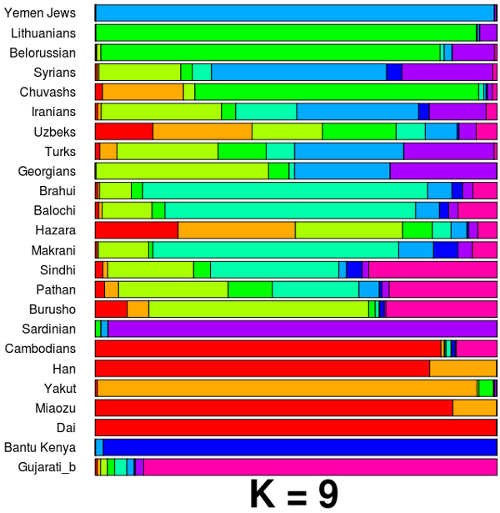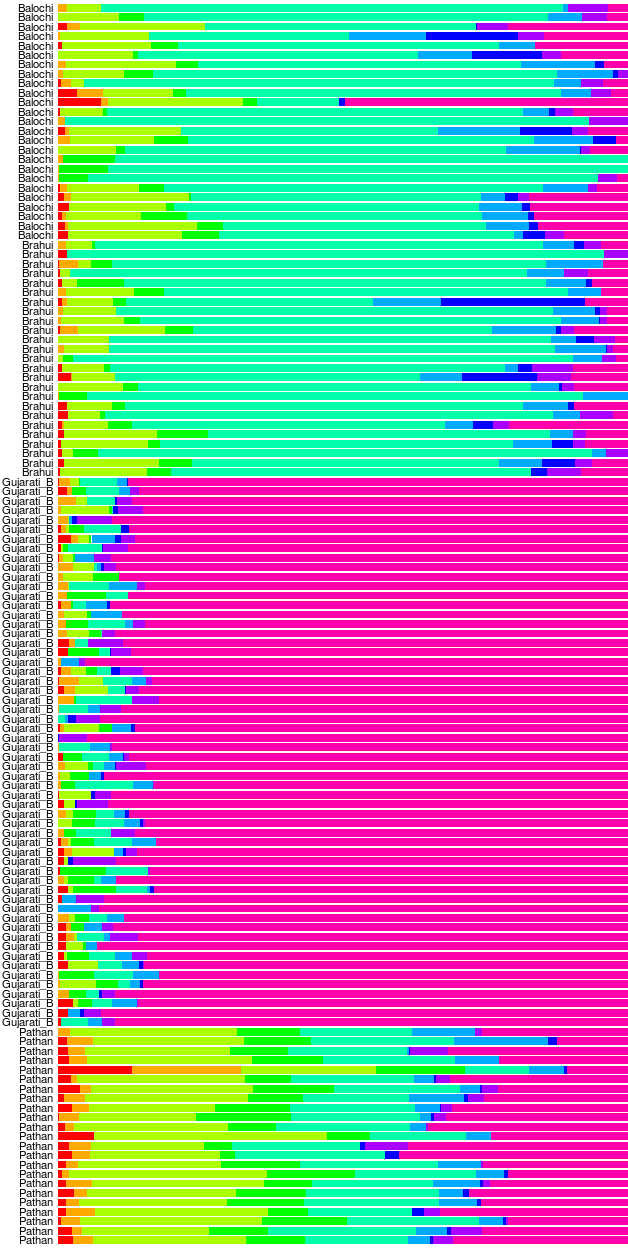From Wikipedia:
The ethnonym “Brahui” is a very old term and a purely Dravidian one. The fact that other Dravidian languages only exist further south in India has led to several specualations about the orgins of the Brahui. There are three hypotheses regarding the Brahui that have been proposed by academics. One theory is that the Brahui as a relic population of Dravidians, surrounded by speakers of Indo-Iranian languages, remaining from a time when Dravidian was more widespread. Another theory is that they migrated to Baluchistan from inner India during the early Muslim period of the 13th or 14th centuries. More established theory says the Brahui migrated to Balochistan from central India after 1000 CE. The absence of any older Iranian (Avestan) influence in Brahui supports this hypothesis. The main Iranian contributor to Brahui vocabulary is a western Iranian language like Kurdish.
A lot of ADMIXTURE plots I’ve seen are more consistent with the first (indigenous) than the latter two (exogenous) models. Here’s a result for K = 9 with ~90,000 markers:
The Balochi and Brahui aren’t too different. The Brahui are “less South Asian” broadly speaking than Pathans, let alone Sindhis. This is not easy to explain if the group arrived from deeper in India ~1,000 years ago. One can explain it through admixture with the local substrate, but take a look at the individual bar plots:
The Brahui look to be somewhat less cosmopolitan than the Balochi, and less South Asian. Balochi is a Northwest Iranian language, like Kurdish. This points to an intrusive history of this group in the current region which it dominates. If the Brahui and Baloch are both intrusive, I suspect that the latter are more recent than the former. Then there is a population X which serves as the basis for the “Brahui component.” I would bet that there wasn’t a population X, that the Brahui are the relics of population X.

